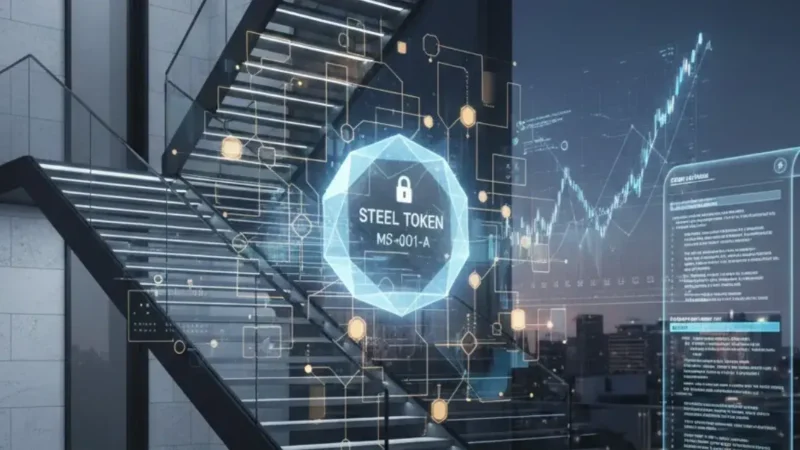Crypto Mining: How It Works and Its Importance

Cryptocurrency has revolutionized the way we think about money and transactions. One crucial component of the cryptocurrency ecosystem is crypto mining. But what exactly is it, and why is it so important? In this comprehensive guide, we’ll explore the fundamentals of crypto mining, its significance, the technology behind it, and how it impacts the broader crypto world.
Table of Contents
What is Crypto Mining?
Crypto mining is the process through which new cryptocurrency coins are created and transactions are verified on a blockchain network. This process ensures the security, integrity, and decentralization of cryptocurrencies. Unlike traditional banking systems, where centralized authorities handle transactions, crypto mining relies on a network of miners to validate and record each transaction.
Key Objectives of Mining:
- Validation of Transactions: Ensures all transactions are legitimate and secure.
- Addition of New Coins: Introduces new cryptocurrency into circulation.
- Maintaining Decentralization: Keeps the network independent from centralized control.
How Does Crypto Mining Work?
To understand mining, it’s essential to grasp the basics of blockchain technology. Here’s a simplified breakdown:
1. Blockchain and Distributed Ledgers
Mining revolves around blockchain technology, a distributed ledger that records every transaction across a decentralized network. Miners compete to solve complex mathematical problems, securing the network and adding new blocks to the blockchain.
2. Proof-of-Work (PoW)
Most cryptocurrencies, such as Bitcoin, use a consensus mechanism called Proof-of-Work. Miners solve intricate puzzles to validate transactions and earn rewards in the form of cryptocurrency.
3. Mining Hardware
Mining requires specialized hardware to perform the intensive computational tasks. Two common types of hardware are:
- ASIC Miners (Application-Specific Integrated Circuits): Powerful and efficient machines designed for mining.
- GPUs (Graphics Processing Units): Versatile and widely used for mining various cryptocurrencies.
The Role of Mining in Cryptocurrency Networks
Cryptocurrency mining serves as the backbone of decentralized cryptocurrency networks. Without miners, cryptocurrencies like Bitcoin and Ethereum would not function effectively. Here’s why:
- Transaction Security: Miners validate and secure transactions, ensuring they are tamper-proof.
- Decentralization: Mining eliminates the need for a central authority, promoting trust and transparency.
- Reward Distribution: Miners are incentivized with cryptocurrency rewards, encouraging continuous participation.
The Process of Mining
Cryptocurrency mining involves several key steps, which we’ll outline below:
Step 1: Transaction Broadcast
When a user initiates a transaction, it is broadcasted to the entire network.
Step 2: Transaction Validation
Miners verify the authenticity of transactions by solving mathematical puzzles.
Step 3: Block Creation
Once validated, transactions are grouped into a block and added to the blockchain.
Step 4: Reward Distribution
Miners who successfully add a block receive cryptocurrency rewards.
Types of Mining
1. Solo Mining
Individuals mine cryptocurrencies independently. While rewards are significant, the process can be expensive and competitive.
2. Pool Mining
Miners pool their resources to increase their chances of solving a block. Rewards are shared among participants based on their contributions.
3. Cloud Mining
Users rent mining hardware or computational power from a provider. This method is beginner-friendly and does not require owning equipment.
Why is Mining Important?
The importance of Cryptocurrency mining extends beyond the creation of new coins. Here’s how it impacts the cryptocurrency ecosystem:
- Network Security: Mining prevents fraudulent transactions and protects the blockchain.
- Decentralization: By distributing control among miners, crypto mining upholds the decentralized ethos of cryptocurrency.
- Economic Incentives: Mining rewards encourage participants to sustain the network.
Challenges in Crypto Mining
While mining is essential, it comes with its challenges:
1. High Energy Consumption
Crypto mining requires significant computational power, leading to high electricity usage. Bitcoin mining, for instance, consumes more energy than some countries.
2. Rising Costs
As the difficulty of mining increases, miners must invest in more powerful hardware, driving up costs.
3. Environmental Concerns
The environmental impact of mining is a growing concern. Sustainable alternatives, such as green energy solutions, are being explored.
4. Regulatory Issues
Governments worldwide are introducing regulations that could impact the profitability and feasibility of mining.
The Economics of Cryptocurrency mining
Understanding the economics of crypto mining is vital for anyone considering entering the field.
1. Mining Rewards
Mining rewards consist of newly created coins and transaction fees. However, rewards decrease over time due to mechanisms like Bitcoin’s halving, which occurs every four years.
2. Mining Costs
Mining costs include hardware, electricity, and maintenance. To profit, miners must ensure their rewards exceed these expenses.
3. Market Trends
Cryptocurrency prices significantly influence mining profitability. A higher coin value increases the incentive for miners.
The Future of Cryptocurrency mining
The landscape of mining is constantly evolving. Here are some trends shaping its future:
1. Transition to Proof-of-Stake (PoS)
Ethereum’s shift to PoS reduces energy consumption by replacing mining with staking. Other cryptocurrencies may follow suit.
2. Focus on Sustainability
Miners are increasingly adopting renewable energy sources to address environmental concerns.
3. Advanced Mining Technologies
The development of more efficient mining hardware will improve profitability and reduce environmental impact.
Stay informed, read the latest crypto news in real time!
FAQs About Crypto Mining
1. What is crypto mining?
Crypto mining is the process of validating transactions and creating new cryptocurrency coins using blockchain technology.
2. Is crypto mining profitable?
Profitability depends on factors like electricity costs, hardware efficiency, and cryptocurrency prices.
3. What equipment is needed for crypto mining?
Miners typically use ASICs or GPUs, depending on the cryptocurrency being mined.
4. Can I mine cryptocurrency at home?
Yes, but profitability may be limited due to high competition and electricity costs.
5. How does cloud mining work?
Cloud mining allows users to rent mining hardware or power from a provider without owning physical equipment.
6. Is crypto mining legal?
The legality of mining varies by country, so it’s essential to check local regulations.
Conclusion
Crypto mining is a critical aspect of the cryptocurrency ecosystem, ensuring the security, integrity, and decentralization of blockchain networks. While it comes with challenges like energy consumption and rising costs, the process remains integral to the operation of cryptocurrencies like Bitcoin and Ethereum.
As technology evolves, the future of mining promises innovations that address its current limitations, paving the way for a more sustainable and efficient mining landscape. Whether you’re a tech enthusiast, an investor, or someone curious about the workings of crypto, understanding crypto mining is essential to grasp the full potential of cryptocurrencies.





